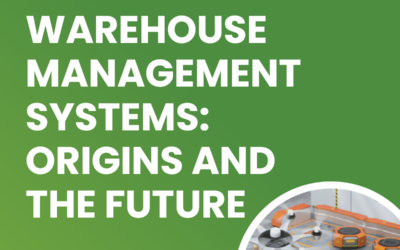TRYON BLOG
When Should I Add AI to My Supply Chain Processes?

Adding artificial intelligence (AI) to your supply chain processes can deliver significant benefits, but the timing and implementation depend on several factors. This includes specific needs of your business, the maturity of your existing systems, and the areas where AI can provide the most value. Below are a few considerations for when and where to add AI to your supply chain processes.
1. Demand Forecasting
When: If your demand forecasts rely heavily on manual processes or traditional methods and you struggle with accuracy, AI can help.
Where: AI can enhance demand planning by analyzing historical data, external factors (like market trends, weather patterns), and consumer behavior. This can improve inventory levels and reduce stockouts.
2. Inventory Optimization
When: If you’re facing challenges with overstocking, stockouts, or excess carrying costs, AI can help.
Where: AI can help in balancing inventory across warehouses and distribution centers by predicting demand, optimizing reorder points, and setting ideal stock levels. Most modern WMS systems have this functionality embedded.
3. Predictive Maintenance for Equipment
When: If downtime from equipment failures is impacting production or fulfillment.
Where: AI-powered predictive maintenance can use data from sensors and IoT devices to predict when machinery will need repairs, reducing unplanned downtime.
4. Warehouse Automation and Robotics
When: When your warehouse labor costs are rising, or your operations are struggling to keep pace with demand, its a good time to bring in AI.
Where: Implementing AI with automated guided vehicles (AGVs), robotics, and automated picking systems can speed up operations, reduce errors, and optimize space utilization.
5. Transportation and Logistics Optimization
When: If transportation costs are high, delivery times are inconsistent, or there’s room for route optimization.
Where: AI can optimize delivery routes, predict traffic patterns, and enhance the allocation of resources. AI can also be applied to driver behavior and fuel efficiency monitoring.
6. Supplier and Vendor Management
When: When supplier reliability, cost fluctuations, or risk management become difficult to predict or manage manually.
Where: AI can provide real-time insights into supplier performance, lead times, and even geopolitical or environmental risks, allowing for proactive decision-making in supplier selection and management.
7. Risk Management and Resilience
When: If your supply chain is vulnerable to disruptions like natural disasters, supplier issues, or global crises, it might be a good time to use AI..
Where: AI can predict and simulate disruptions, offering contingency plans and helping with faster response times to avoid significant delays or losses.
8. Customer Service and Order Fulfillment
When: If delays, incorrect orders, or poor visibility in the order process are leading to customer dissatisfaction, it is a good time to bring in AI.
Where: AI chatbots can provide real-time tracking, resolve customer inquiries, and AI-driven order management systems can reduce errors and accelerate fulfillment.
9. Sustainability Initiatives
When: If your company has sustainability goals and needs to optimize processes to reduce carbon footprints and waste.
Where: AI can optimize route planning, reduce energy usage in warehouses, and help with packaging optimization, all contributing to more sustainable practices.
General Timing Consideration:
If you’re beginning digital transformation or upgrading legacy systems, it’s important to have a solid data infrastructure in place. AI relies on quality, clean data, so assess your data readiness before deploying AI solutions.
Or maybe you’ve already automated parts of your supply chain but are looking for further optimization, AI can take your operations to the next level, providing a deeper level of insight and efficiency…in turn, a better customer experience.
By prioritizing the areas where AI can have the most immediate impact, you can start small and scale as you gain confidence in AI’s ability to optimize your supply chain.

Written By Jeff Constable
More From This Category
The FDA is NOT FUNNY, But this is…
There is not a lot of funny business when it comes to compliance in the warehouse, but to stay on...
Warehouse Management Systems: Origins and The Future
Warehouse management systems have come a long way from the humble origins of a simple inventory...
How 3PL’s Can Be Different and Stand Out
In the competitive world of third-party logistics, standing out is crucial. One powerful way to...



